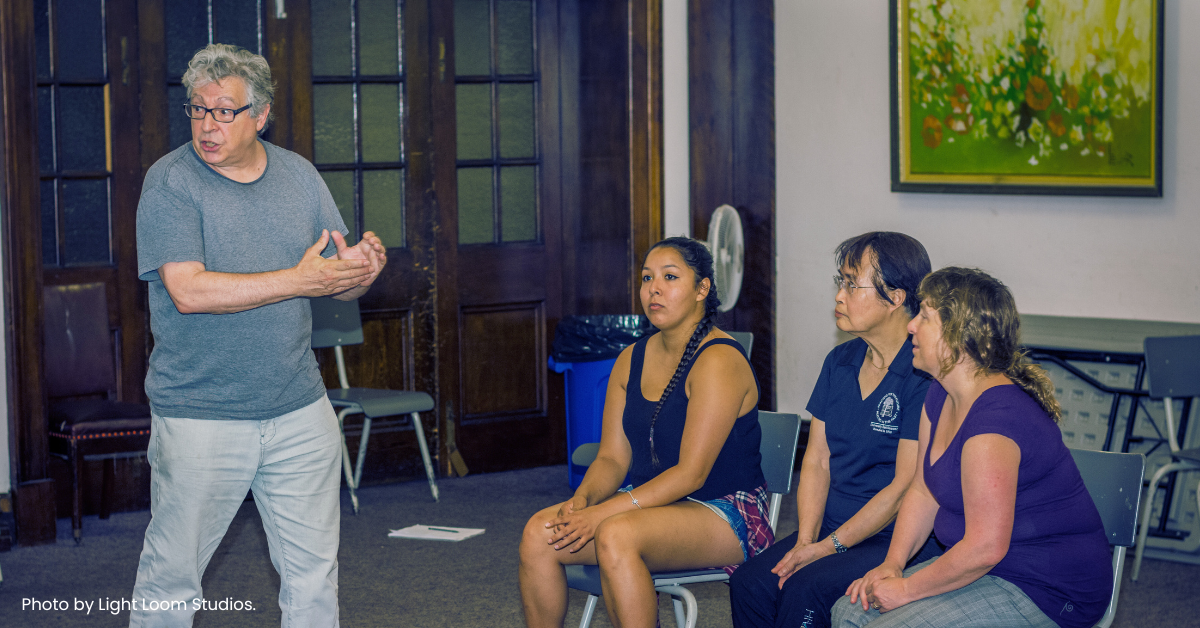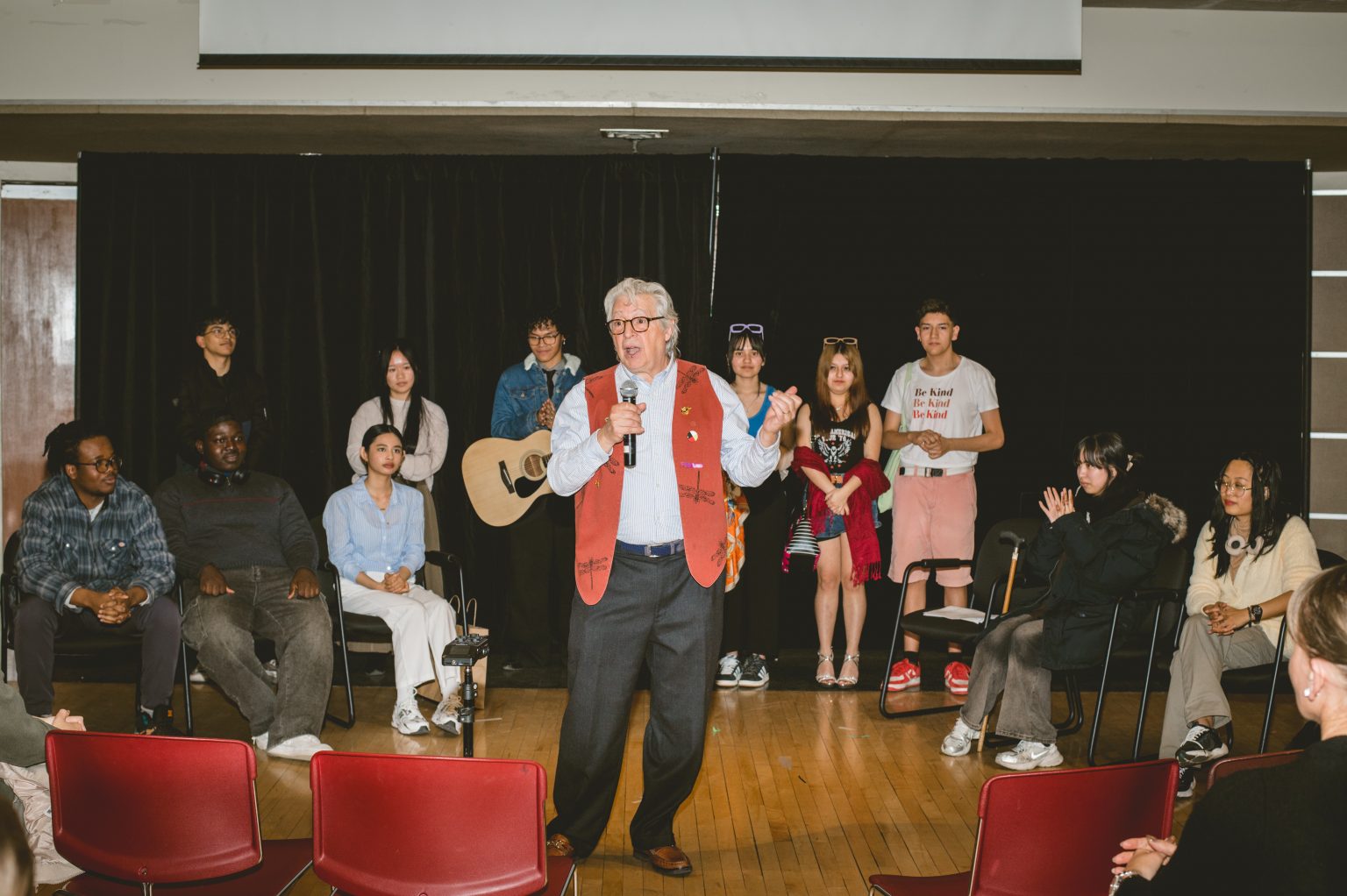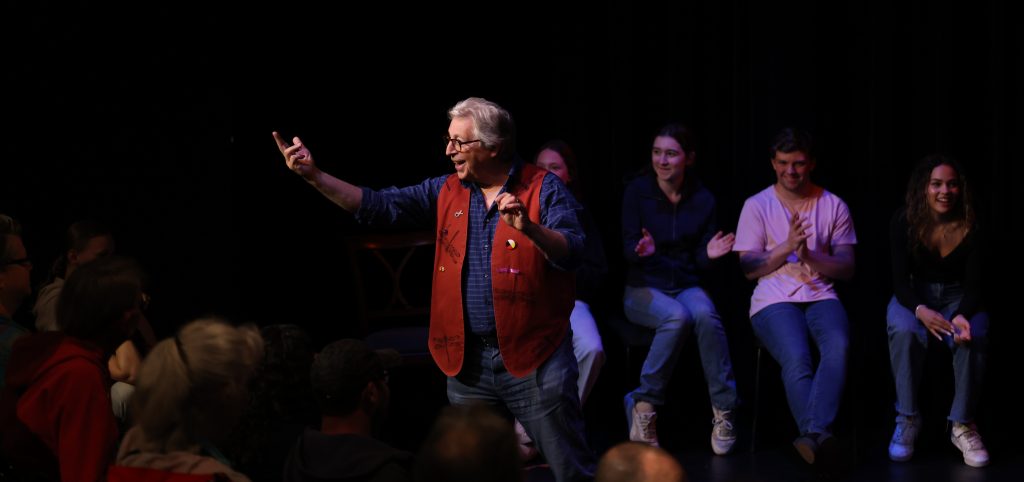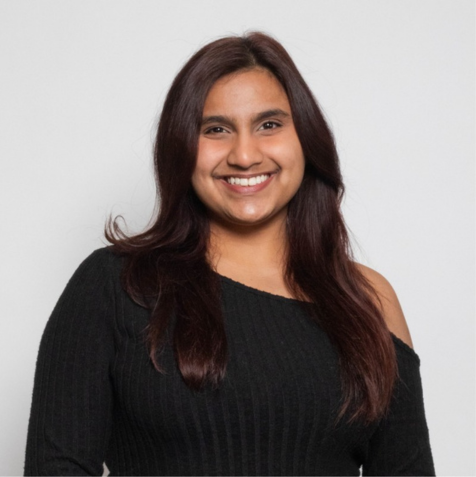
In June, Mixed Company Theatre’s Artistic Director, Simon Malbogat, received the opportunity to travel to New Brunswick to lead Forum Theatre workshops in partnership with the Deaf Arts Academy. The goal was to work with Deaf actors from across Canada to introduce and explore Forum Theatre techniques, providing a training space that centered their stories and creative expression. Through this collaborative process, the group began to explore how Forum Theatre could reflect the unique challenges faced by the Deaf community and open up space for critical dialogue through performance. As one of the only two hearing persons in the room apart from the translator for the program, Simon approached the process with care and curiosity, knowing this would be as much a learning experience for him as it was a creative one for everyone involved.
From the moment he began his journey, Simon was exposed to the kinds of barriers many Deaf individuals face every single day. At the airport, for instance, when he informed a staff member that the person they were calling for was Deaf, they simply responded that they knew, yet made no effort to assist or provide accessible communication. Later, he heard from one of the participants that after airport staff realized they were Deaf, someone ran after them with a wheelchair, assuming that was the appropriate accommodation. These moments of irresponsibility revealed larger commentary towards misunderstandings surrounding accessibility in society today. It spoke to how systems often rush to act based on assumptions, rather than listening and understanding what people actually need.

Once in New Brunswick, the workshops began with participants sharing real, often painful stories borrowing from their social circle as well as their own lives. One person recounted their friend’s hospital visit in which they were asked to sign forms they couldn’t understand, only to wake up from surgery and discover that their leg had been amputated. Another shared the experience of missing a flight after a gate change was announced only by voice, leaving them behind with no idea the boarding had moved. Others described being the last person left on a TTC train, unaware that everyone else had exited due to an announcement they couldn’t hear. In public places like shopping malls, some had been approached or even grabbed by security during emergencies, not because they were doing anything wrong, but because they hadn’t heard warnings or instructions to move. These moments are not just confusing, but also dehumanizing and sometimes dangerous, highlighting how deeply inaccessibility is embedded in everyday life – and especially how it has been made invisible for able-bodied people.
The group also reflected on how discrimination can show up in the workplace. Many Deaf individuals are passed over for jobs because they can’t use a phone. Even when hired, they are rarely considered for promotions, and often face bias or a lack of accommodations. But the conversations didn’t stop at the barriers imposed by the hearing world. Participants also explored tensions within the Deaf community itself—stories of being judged for not signing “correctly,” or being told they weren’t “deaf enough.”
The Forum Theatre piece created by the group also recalled moments of exclusion or mistreatment from other Deaf individuals or businesses, revealing how internalized oppression can shape community dynamics in painful ways. In one scene, a Deaf customer described going to a Deaf-owned computer shop, expecting the product to be free or heavily discounted because it was part of their own community. When the shop quoted a fair price, the customer chose to leave and later paid the same amount at a larger chain. This prompted a larger conversation about the need to support the Deaf “economic ecosystem”, and how harm within the community can undermine that support.

Throughout the process, Simon worked closely with Deaf actors, facilitators, and interpreters to adapt classic Forum Theatre techniques in ways that he aimed to make fully accessible. With the help of artist and facilitator Dawn Jani Birley, physical warmups and storytelling exercises were reimagined to centre visual expression, movement, and embodied communication. One particularly moving scene explored the experience of “Dinner Table Syndrome,” when hearing families choose not to sign, leaving Deaf children isolated from conversations in their own homes. This experience is all too common as around 90% of Deaf children are born to hearing parents, many of whom never fully learn or use sign language, deepening the communication gap within families.
The activities had the potential to spark change beyond the workshop space, as one participant reflected on how they might begin to assert themselves and their feelings more openly at home, choosing to communicate on their own terms when their voice isn’t heard or respected. These stories brought complex issues of identity, power, and resistance to the forefront, allowing participants to take control of their narratives and imagine how things could be different.
For us, the residency was a powerful reminder of the role theatre can play in building empathy and creating social change. The piece that emerged from the workshop did not shy away from difficult truths. It gave space to stories of frustration, exclusion, and injustice; but also to moments of agency and solidarity. As Simon shared afterward, he may have entered the room as a facilitator, but he left having been deeply taught by the community around him.
Mixed Company Theatre is proud to have been part of this collaboration and is committed to continuing work that challenges ableism, and creates spaces where everyone—regardless of how they communicate—can be seen, gestured, and valued.
Reference (“Dinner Table Syndrome”)
https://nagish.com/post/dinner-table-syndrome


Co-written by Jannat Narang and MCT’s Artistic Director Simon Malbogat


